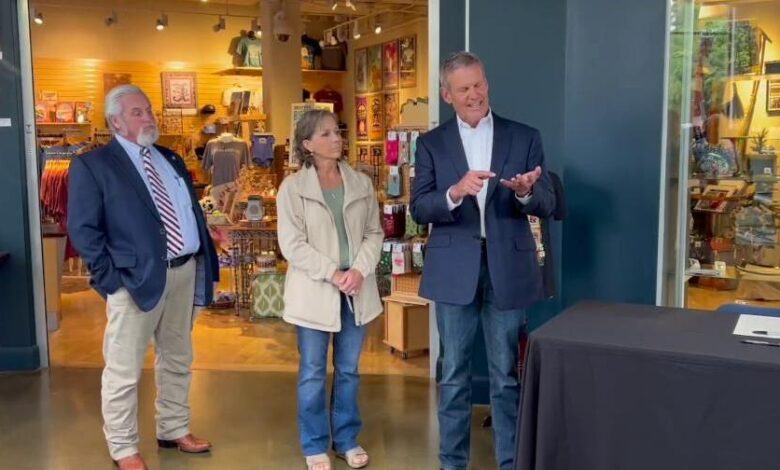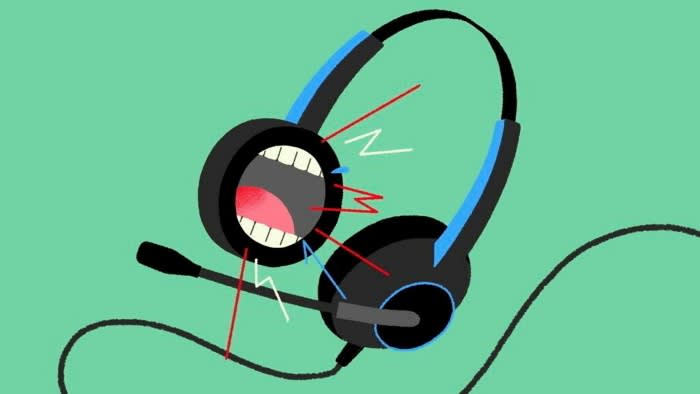Gov. Lee touts new artificial intelligence regulations

BRISTOL, Va. – Tennessee Gov. Bill Lee ventured across the state line Monday to tout new legislation aimed at protecting musicians and those working in the music industry.
Birthplace of Country Music Museum’s head curator, Rene Rodgers (right) gives a tour of the museum to Tennessee Governor Bill Lee (middle) and wife Maria Lee (left).
He toured the Birthplace of Country Music Museum and discussed the new legislation, which is the first of its kind in the nation.
Tennessee Gov. Bill Lee (seated) signs the Ensuring Likeness Voice and Image Security Act, or ELVIS Act, after a tour of the Birthplace of Country Music Museum on Monday.
The Ensuring Likeness Voice and Image Security Act, or ELVIS Act, was signed in March and aims to regulate artificial intelligence as it relates to the arts, specifically musicians. It was approved unanimously in both chambers of the General Assembly.
“Part of what happened at the Bristol Sessions was technology because the quality of the music changed. Technology today has done a lot of remarkable things but used improperly it can be detrimental to artists. Artificial intelligence in particular can imitate and impersonate the voice and likeness so we brought together a piece of legislation that ensures the likeness, voice and image of artists,” Lee said after touring the museum.
People are also reading…
Lee hopes the bill will become a model for other states to follow and ultimately be adopted by the federal government.
Birthplace of Country Music Museum’s head curator, Rene Rodgers (left), talks about several of the pieces on display at the museum including a couple Jimmie Rodgers’ Guitars during a tour with Tennessee Governor Bill Lee (middle).
“We know music is life changing but we must protect the livelihoods of those who make it,” Lee said.
The state’s music industry – much of it based in Nashville – was overwhelmingly supportive of the legislation.
Tennessee Governor Bill Lee (middle) listens to sounds from the 1927 Bristol Sessions with wife Maria Lee (left) as Birthplace of Country Music Museum’s head curator, Rene Rodgers (right), talks about the museum during his tour.
“Tennessee has the largest number of workers in the music industry of any state in America. We have to protect those workers and that industry,” Lee said.
“Part of what made Bristol the city it is and Tennessee the state that it is are the artists themselves. Protecting artists – whether artists of the past or artists of the future – protecting their livelihoods, protecting their creative gifts that are uniquely theirs, we’re reminded how crucial the music industry is to our state,” he said.
Dallas Wayne, a longtime performer and Sirius XM radio host now living in the Twin City, praised the legislation.
“It’s really important. The songwriting, publishing and performing is all shifting at a very rapid pace and I was delighted to see this bi-partisan legislation being passed to advance this cause. I’d love to see it happen on a national level,” Wayne said.
He called the bill a good first step but that technology is evolving so quickly it will have to be monitored.
Asked for an example of potential impacts, Wayne said, “On my radio side, I hate to say it, but it wouldn’t be that hard to replace me with an AI bot.”



